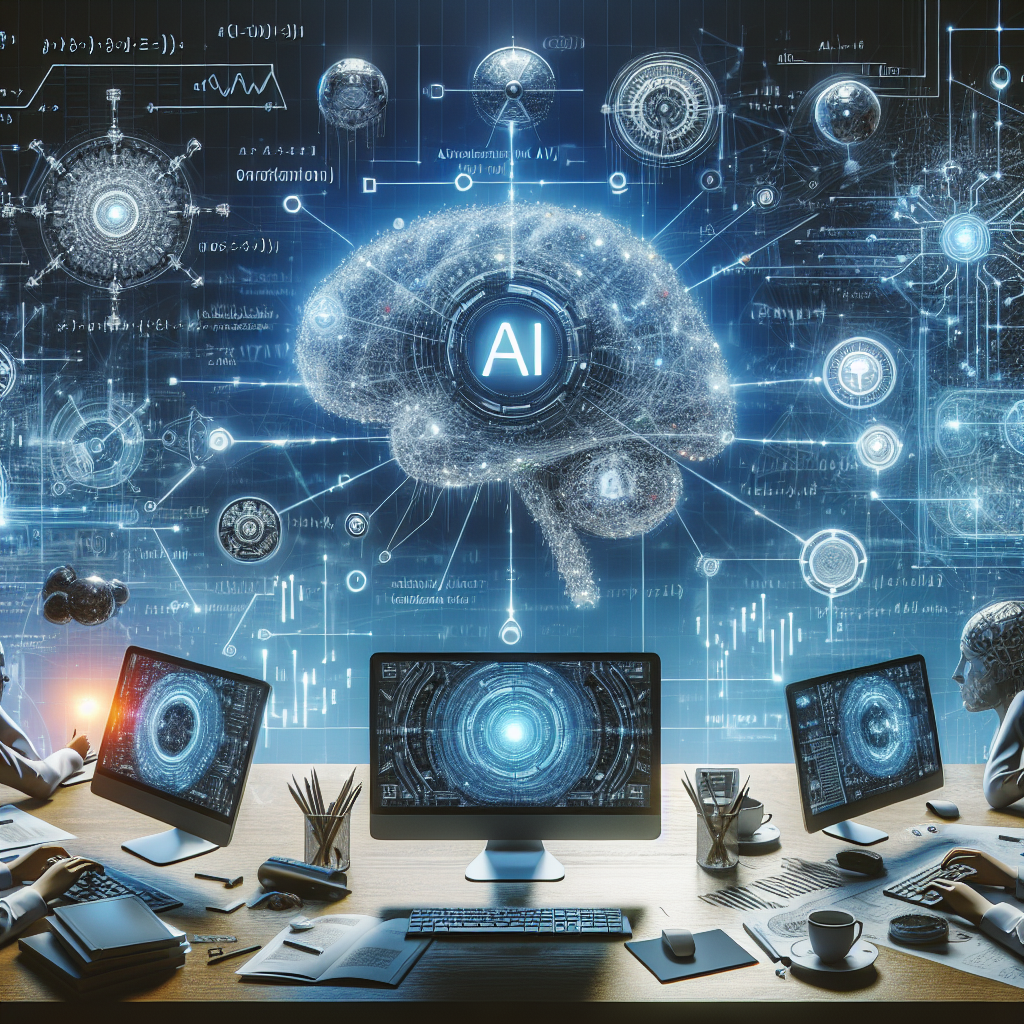Artificial General Intelligence (AGI) has long been a goal of the field of artificial intelligence. AGI refers to a machine that can perform any intellectual task that a human can do. While we have made significant progress in the field of AI in recent years, true AGI has remained elusive. However, recent breakthroughs in the field have reignited excitement and speculation about the future of AI and what it could mean for society.
One of the most significant recent advances in the field of AGI is the development of deep learning algorithms. These algorithms are based on artificial neural networks that are inspired by the way the human brain processes information. Deep learning has enabled machines to learn from large amounts of data, making them capable of performing tasks that were previously thought to be the domain of human intelligence. This technology has been used in a wide range of applications, from speech recognition and image classification to natural language processing and autonomous driving.
Another key breakthrough in AGI is the development of reinforcement learning algorithms. Reinforcement learning is a type of machine learning where an agent learns to make decisions by interacting with its environment and receiving rewards or punishments based on its actions. This approach has been used to train machines to play complex games like Go and chess at a superhuman level. Reinforcement learning has also been applied to robotics, allowing machines to learn how to perform tasks like grasping objects and navigating through complex environments.
Advances in hardware have also played a crucial role in the development of AGI. The increasing availability of powerful GPUs and TPUs has enabled researchers to train larger and more complex neural networks, leading to significant improvements in the performance of AI systems. In addition, the development of neuromorphic chips that mimic the structure and function of the human brain has opened up new possibilities for building more efficient and intelligent machines.
One of the most exciting recent developments in the field of AGI is the emergence of self-supervised learning. Self-supervised learning is a type of machine learning where a model learns to predict missing parts of its input data. This approach has been shown to be highly effective in training AI systems on large amounts of unlabeled data, making it possible to learn complex tasks without the need for human-labeled datasets. Self-supervised learning has the potential to revolutionize the field of AI by enabling machines to learn from raw sensory data in a way that is more similar to how humans learn.
While these recent advances in AGI are certainly impressive, there are still many challenges that need to be overcome before we can achieve true artificial general intelligence. One of the biggest challenges is the issue of explainability and interpretability. AI systems are often seen as black boxes, making it difficult to understand how they make decisions. This lack of transparency can be a significant barrier to the adoption of AI systems in critical applications like healthcare and finance.
Another challenge is the issue of robustness and reliability. AI systems are vulnerable to adversarial attacks, where small perturbations to input data can cause them to make incorrect predictions. Ensuring the robustness of AI systems is crucial for their safe deployment in real-world scenarios. Additionally, the ethical implications of AGI must be carefully considered, as the potential for misuse and unintended consequences is significant.
Despite these challenges, the recent advances in AGI have the potential to revolutionize a wide range of industries and transform society in profound ways. From autonomous vehicles and personalized healthcare to intelligent assistants and automated decision-making, the possibilities are endless. As we continue to push the boundaries of AI research, it is crucial to consider the ethical, social, and economic implications of these technologies and ensure that they are developed and deployed responsibly.
FAQs:
Q: What is the difference between artificial general intelligence (AGI) and artificial narrow intelligence (ANI)?
A: Artificial general intelligence refers to a machine that can perform any intellectual task that a human can do, while artificial narrow intelligence refers to a machine that is designed to perform a specific task or set of tasks. AGI is more flexible and capable of adapting to new tasks and environments, while ANI is limited to the tasks it was designed for.
Q: How close are we to achieving true AGI?
A: While recent advances in AI have brought us closer to achieving AGI, there is still a long way to go. AGI remains a challenging and complex goal that will likely require significant advancements in algorithms, hardware, and understanding of human intelligence.
Q: What are some potential applications of AGI?
A: AGI has the potential to revolutionize a wide range of industries, including healthcare, finance, transportation, and entertainment. From personalized medicine and autonomous vehicles to intelligent assistants and creative content generation, the possibilities are endless.
Q: What are some of the ethical considerations of AGI?
A: As AGI technologies become more advanced and widespread, there are significant ethical considerations that need to be addressed. These include issues of privacy, bias, fairness, accountability, and transparency. It is important to ensure that AGI is developed and deployed in a way that is ethical and responsible.
In conclusion, recent breakthroughs in artificial general intelligence have the potential to transform society in profound ways. While there are still many challenges to overcome, the future of AGI looks promising. As researchers continue to push the boundaries of AI research, it is crucial to consider the ethical, social, and economic implications of these technologies and ensure that they are developed and deployed responsibly. AGI has the potential to revolutionize a wide range of industries and improve the quality of life for people around the world.

